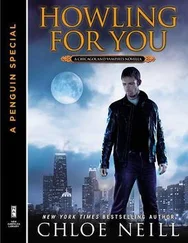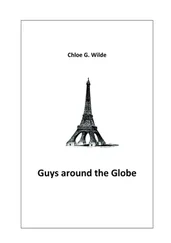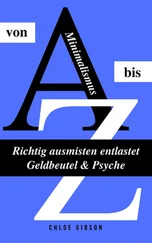A few months after his disappointment at the National Gallery, Daniel was offered a similar job at Tate Britain. The paintings weren’t as magnificent, even the best of them, but he liked most of them too. The museum lay farther from home, now a bus and two Tube journeys rather than a simple bus ride, but he could use the time to read. And the building wasn’t as large or grand as our Gallery, but at least it too was classical in style, with a six-column portico and a central dome. A different kind of cathedral, less holy and with fewer pilgrims, yet my friend was determined to protect the paintings with the same degree of devotion.
As for the other warders, they were of a different breed from those he was used to. He was amazed by how scarce they were and by how many rooms seemed to go without protection, but then realised there were fewer visitors as well. And unlike many of us at the Gallery, the guards at Tate Britain were mostly art students or aspiring artists who had no intention of spending their lives working in security.
At first Daniel had a crisis over the presence of so much twentieth-century, even contemporary, art — how could it compare, how could it coexist, with that of the past? He couldn’t help feeling that by placing the centuries so close together they were stretching things, diluting the force of the greats, and it took him several weeks to stop feeling a jolt each time he turned from a room with Blakes or Turners into one containing less transcendent work.
Yet to enter the room with Turner’s late paintings, he would say, was extraordinary, and made it all worthwhile, it was like entering a room of light, pure sunlight pouring forth from the walls, that was when the voltage surged, when the museum became a cathedral.
In fact, early on in our friendship we had agreed, during one of our very first conversations, that we much preferred the old to the new. It was far better to watch over art that had withstood the test of time — why devote hours of your life guarding something that might be gathering dust or mould in a warehouse fifty years from now?
‘If the foreign couple hadn’t noticed Crooke in his chair I would’ve probably been the one to discover him,’ I reflected, ‘when I’d moved on to Room 23.’
‘We’re thin lines of defence,’ Daniel replied, tapping on his glass with two fingers.
‘That we are,’ I said, half relishing the thought.
Over the decades the museum lore gathered, mainly things overheard rather than witnessed first-hand. Among these were the widely circulated stories that had become public domain, such as the heavily lipsticked woman who kissed a white painting in order to cheer it up, and the guard at the Louvre who went around carving Xs into paintings with his own set of keys. And of course Rembrandt’s Night Watch , attacked no less than three times in the past century. We came to hear about all sorts of museum pathologies, mostly involving people suffering from an identity crisis, paintings mistaken for mirrors as individuals caught sight of a troubling reflection.
At work we had been taught to be good judges of character, programmed to pick up on the slightest stirrings of unrest, to read faces and gauge their intentions. After so many years at the job, I had become finely skilled in the interpretation of a clenched fist, a skittish glance, the roaming gaze of someone unharnessed. I would try to detect whether there was something in immediate need of release, on the verge of eruption, a dangerous failure to distinguish one’s personal life from that of a painting.
Daniel knew many more stories than I did, and additional ones from overseas, such as the irritable old ladies at the Hermitage who despite seeming languid and inert were in possession of sharp eyes and tongues, the mentally impaired guards at one of Munich’s painting collections, and the custodians at Pompeii who flicked ash from their cigarettes into the ruins.
After he’d brought up some of these details yet again that evening, reminding me of the great yet for the most part untapped range of variables in our profession, I returned the conversation to poor Leighton Crooke, whose fading pulse I could still feel between my fingers, but as I spoke I could see Daniel’s attention beginning to drift.
The girl at the bar was calling out — with a rather pronounced lisp that didn’t match her looks — to a man who was walking away without collecting his change. But for a few degrees her face was nearly turned in our direction. Daniel made himself taller in his chair, straining to enter her line of vision.
Most of the time, like me, he did not care to draw notice to himself and was similarly content to carry out life at low volume. There was an abundance of loud people in the world, we agreed, and someone had to compensate, bring the dial down halfway. We preferred to stand back, cross our arms, and observe. The world was full of people rushing around trying to change things or make themselves seen. So it fell to the rest of us to withdraw from the foreground, just like those distant bluish landscapes in old paintings, so discreet you only notice them later. I liked to imagine our kind as thinkers in training, a flow of indefinite blue that deepens over time.
Ships in bottles steered by one tiny captain, Daniel liked to say. He too enjoyed the invisibility, of having gazes wash over him with indifference. But there at the pub that night he was desperate to have his presence acknowledged.
His first glimpse of her had been a profile, as she’d held a goblet to the tap of Leffe and waited for it to fill, and he’d stood at the bar transfixed, longing to see up close the face within the bob, the kind of cut-glass bob that in silent films framed a whole catalogue of faces. A new employee, he assumed, or the publican’s daughter home from somewhere. He had never seen her before.
‘She kind of looks like you but with a wonky eye,’ he’d later said, and I remember being half flattered, half aghast, at the thought of looking like anyone or anyone looking like me, yet was intrigued by the wandering eye Daniel mentioned, wired up to its own puppeteer. From where I was sitting I could see there was indeed a resemblance, and when he returned, emboldened, to the bar for another round, he commented on her jagged black fringe, like that of a cabaret singer whose hair had been trimmed in the dark.
‘Kind of like yours,’ he’d added, with which again I had to agree, though I had my flatmate Jane to thank for that; she was the one in charge of trimming my fringe and also did it in the dark, in the darkness of self-absorption.
Daniel and I each had our collections, private and public, and beyond their horizons all we required was one solid friend. Neither of us had anyone else of significance in our lives, though every now and then he would fall prey to an obsession, for the most part unrequited, and I would have a brief encounter, usually with someone I dimly knew from my past, that didn’t threaten the peace.
After meeting, ours had quickly settled into a friendship with thankfully little ambiguity, and though I was drawn to his face and found myself studying it from different angles, even having faintly erotic dreams about him once or twice a year, I could never imagine getting close.
At thirty-three my romantic past was far from populated — a modest list of names with few pangs attached, perhaps one or two vague regrets but certainly no one for whom I longed to rewind time. As for Daniel, he’d been married in his early twenties to a Japanese nurse, and the only lasting result of those three years, he said, was a twenty-eight-line poem, ‘False Door to the Tomb’. He still occasionally dreamt of finding someone but over time had started to feel like the last remaining individual of a species, he said, a highly evolved bird with a highly evolved cry, his song unheard since he never shared it with anyone, and he’d even started to wonder whether perhaps the right female for him had become extinct, preceding him by days, decades or centuries; anything was possible, a tragic error in chronology or biodiversity.
Читать дальше












